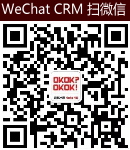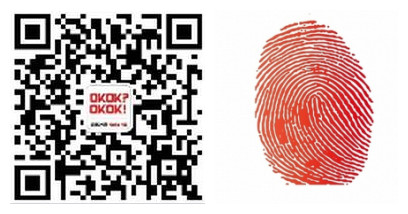Common Scams
As elsewhere in the world, in China you may come across people who try to exploit the unsuspecting. When on holiday, tourists often let down their guard and that makes them especially vulnerable to scams. So again, caution and common sense are vital.

Do not trust the people on the street side who offer services of money exchange.
1.Currency exchange: Beware of people on the street side who offer services of money exchange. If you do need to exchange money, do it in the Bank of China or at the star-rated hotel.
2.Counterfeit/worthless change: When you are shopping check your change carefully. If you are using large denomination bills, make sure that you get undamaged, clean, and genuine notes in your change. You can always ask for different change if you are not satisfied.
3."The tea house scam": Be cautious if somebody approaches you and invites you for a drink at a tea house or bar nearby to "practice English". There have been reports of tourists being left with the bill.
4."The roll of banknotes scam": Do not pick up rolls of banknotes found on the street. A scam artist will probably then approach you asking for you to share your new found wealth. He will ask for the money in your wallet and then you will find that the banknotes are worthless.
5.ATM crime is on the rise recently. There are continual reports of ATM scams including using fake ATMs or other methods used to steal the user's card and PIN. You are advised to use ATMs when accompanied and during the daytime, avoiding machines that look suspicious.
6.Begging: You may well come across beggars in China, particularly in the larger cities. In the vast majority of cases you shouldn't feel threatened or intimidated, but if you do report the incident to the police. If you want to hand out money, make sure that you exercise some caution and common sense. Carry some loose change. Not all beggars are genuinely in need or get to keep what they are given.

Counterfeit Money
Watch out for counterfeit money. 100 yuan notes that you get from a bank or ATM won’t be fake, so if anyone says they are and wants to change one of yours it is a scam. They might switch a note you used to pay for something for a fake and then ask for another 100 yuan note instead of “your” fake. The best thing to do here is definitely not to give them another 100 yuan. You should call the police if you know it to be a switch. If you are holding a fake note that someone has just handed you the police may be able to do something.
Giving counterfeit money out in exchange for foreign currency takes advantage of new arrivals in China by offering good rates of exchange on the street near popular entry points: airports, airport bust stations and first-day tourist attractions. Always do currency exchange at a Bank of China, a reputable hotel, or other recognized place.
Another common way of giving counterfeit money to the unsuspecting is in returned deposits, e.g. for bicycle hire or in change. If you notice a fake, you can always ask for another note.
Tea Ceremonies and Meals with Strangers
The classic scam involves a friendly stranger who asks you to go somewhere to drink tea or eat a meal (and perhaps practice English) and then you are left with a big bill. Make sure you choose the place.
Taxis
Use genuine taxis with genuine meters. Get a receipt before you get out in case you accidently leave something in the taxi. Illegal taxis may have rigged over-charging meters, leave you at the wrong place, claim the price was per person instead of in total, or drive off with your luggage.
Cheap Tours
You may be offered a cheap tour that will turn out to include a gauntlet of souvenir outlets with pressure to buy, and other commission earners like third-rate performances, and maybe low-quality transport, food and guide as well, with very little time at the actual attraction.
Chinese Medicine
Beware of shady practitioners that charge a lot for their diagnosis or overcharge for some herbs or other “cure”.
Restaurants
Always find out the price of everything before eating. If you suspect anything get it written down so there can be no “misunderstandings”. Extras that are commonly charged for at around 1 yuan each are tea (sometimes per person), use of plastic-wrapped crockery sets, packs of tissues, and bowls of rice. These may cost a little more at more expensive restaurants, but check you are not drinking a really expensive tea without realizing. If you are offered a private room, check that it does not have an exorbitant price attached.
Massages
Scams include extra charges for use of a room, or for a change of price at the end because of “some misunderstanding”. Make sure the price is clear at the start. To avoid embarrassment don’t order a massage from a hotel, especially of the type where the masseuse comes to your room, as most hotels have massages with a sexual nature, and you may be forced to pay if they start.
Most massage shops are genuine, honest and very good value for money, but beware those with private rooms, often on bar streets. If unsure you can ask your guide or your friends for some suggestions.
Begging
With begging it is always your choice whether you give or not, but bear in mind that many of the stories that people come up with when asking for money are not genuine. The classic ask is for the price of a train ticket home by some “destitute traveler”.
Often crippled beggars are left in strategic locations and used by someone as a way of earning money from peoples’ compassion. Scruffy girls selling roses are often very persistent and highly skilled professionals. Try to avoid them as you will find it difficult to get away until you have paid.
Pick-Pocketing and Stealing
Beware of pick pockets in areas frequented by tourists, crowded streets and markets, sights, buses, etc. Often there will be more than one working together. Beware tackling them as they often carry knives in order to force a getaway.
One thief may distract or bump into the victim while the other steals. Use money belts or put your valuables where they are difficult to get at. Do not have more snatchable and lootable items than your hands can protect hanging off you in a crowd, e.g. camera, lens bag, jewelry, laptop bag, shoulder bag, hip pouch, backpack, wallet in back pocket, etc.
Also beware falling asleep on long bus rides or train rides, when a pick pocket can sneakily slide a hand or tweezers into a pocket or bag, and get off at the next stop.
Conclusion
Having covered all of these risks, it should be noted that most Chinese are honest and helpful, and crime nuisance, especially major crime, can be lower than in Western cities due to the large penalties and government controls. Anyway,don’t give the opportunists any opportunities and hopefully they will find something more honest and useful to do.
Follow us on wechat:OKOKOKOKnet .Press the QR and click Extract QR code

Source:chinahighlights
Using WeChat? Scan QR Code or Press the Fingerprint Below ↓
--- (Or ADD WeChat ID: OKOKOKOKnet)
